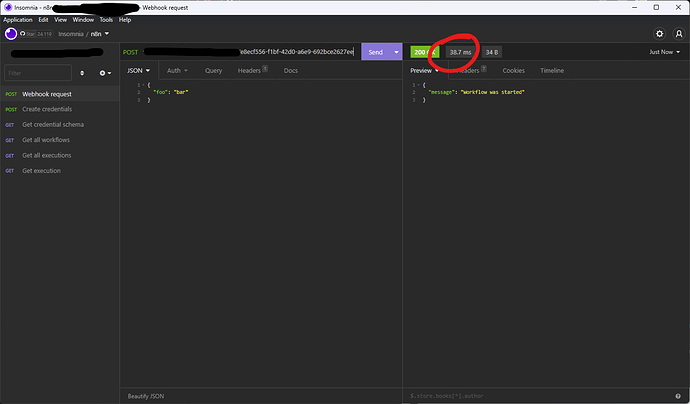Describe the issue/error/question
As a telco company we are investigating the possibility to use n8n for creating application servers. This requires the workflow to have an output latency (between incoming api call and outgoing webhook response) of around 50-200 msec maximum. During our investigations -using Linux desktop docker- we experience latencies of around 2500 ms for a very simple (non-mysql qyery) webhook to response workflow. That range is unuseful to telecommiunicatiopn applications.
The question is: can we reduce that response latency realistically to 50-200msec per workflow by settings?
EXECUTIONS_PROCESS main
EXECUTIONS_MODE queue
What is the error message (if any)?
Please share the workflow
(Select the nodes and use the keyboard shortcuts CMD+C/CTRL+C and CMD+V/CTRL+V to copy and paste the workflow respectively)
Share the output returned by the last node
Information on your n8n setup
- n8n version:
- Database you’re using (default: SQLite):
- Running n8n with the execution process [own(default), main]:
- Running n8n via [Docker, npm, n8n.cloud, desktop app]:
